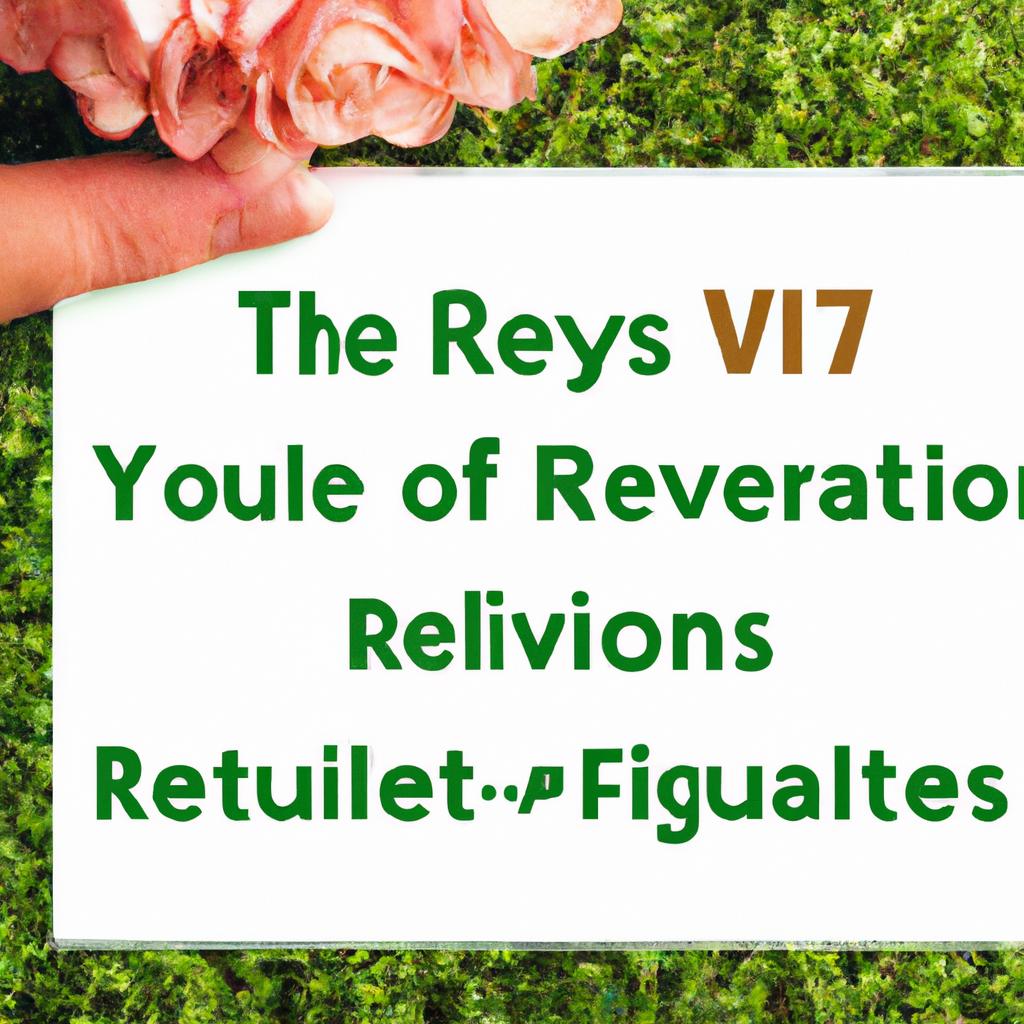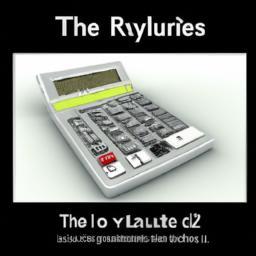In the intricate world of estate planning and inheritance tax, there exists a rule that holds significant weight in determining the tax consequences of passing on assets to loved ones: the 7-year rule. As seasoned legal professionals at Morgan Legal Group in New York City, we specialize in guiding individuals through the complexities of Wills, trusts, and probate matters. In this article, we delve into the nuances of the 7-year rule in inheritance tax, shedding light on its implications for estate planning and wealth preservation.
Understanding the Concept of the 7-Year Rule in Inheritance Tax
When it comes to estate planning and inheritance tax, the 7-year rule is a key concept that individuals need to understand. This rule basically relates to the tax implications of gifts made within 7 years of a person’s death. In simple terms, any gifts made by an individual within 7 years of their passing may still be subject to inheritance tax.
It’s important to note that not all gifts are subject to the 7-year rule. There are exemptions and thresholds that individuals need to be aware of when planning their estate. Seeking professional advice from a knowledgeable estate planning attorney can help navigate the complexities of the 7-year rule and ensure that your assets are protected for future generations.

Important Considerations for Navigating the 7-Year Rule Effectively
When navigating the 7-year rule in inheritance tax, there are several important considerations to keep in mind in order to effectively manage your estate planning strategies. Planning ahead and understanding the implications of this rule can help ensure that your assets are distributed according to your wishes and minimize tax liabilities for your beneficiaries.
Some key considerations for navigating the 7-year rule include:
- Estate Planning: It is essential to have a comprehensive estate plan in place that takes into account the 7-year rule and its implications for inheritance tax. Consulting with an experienced estate planning attorney can help you create a plan that maximizes tax efficiency and achieves your long-term goals.
- Gifting Strategies: Making gifts to loved ones during your lifetime can be an effective way to reduce the value of your estate and minimize potential tax liabilities. However, it is important to consider the 7-year rule, as gifts made within 7 years of your death may still be subject to inheritance tax.

Optimizing Estate Planning Strategies to Minimize Tax Liability
The 7-year rule in inheritance tax is a crucial factor to consider when . This rule states that gifts made within seven years of death are subject to inheritance tax. The closer the gift is made to the date of death, the higher the tax liability. However, gifts made more than seven years before death are generally exempt from inheritance tax. It is important to be mindful of this rule when planning your estate to ensure that your loved ones receive as much of their inheritance as possible.
To navigate the complexities of the 7-year rule and minimize tax liability, it is essential to work with experienced estate planning professionals like the experts at Morgan Legal Group. By strategically planning your gifts and making use of exemptions and allowances, you can ensure that your estate passes on to your beneficiaries with minimal tax consequences. Our team can provide personalized guidance tailored to your specific situation to help you make informed decisions and optimize your estate planning strategies for the benefit of your loved ones.
Ensuring Compliance with the 7-Year Rule to Preserve Family Wealth
In the realm of estate planning, understanding the intricacies of inheritance tax laws is crucial to preserving family wealth for future generations. One key concept that individuals must consider is the 7-year rule, which plays a significant role in determining the tax implications of gifts made before death. Essentially, the 7-year rule stipulates that any gifts made by an individual will be free from inheritance tax if they survive for at least seven years after the gift is given.
Failure to comply with the 7-year rule could result in hefty inheritance tax bills for your beneficiaries. To navigate this complex legal landscape effectively, it is essential to seek the guidance of experienced professionals like the Morgan Legal Group. Our team of skilled attorneys can provide personalized advice and tailored strategies to ensure compliance with the 7-year rule and protect your family’s wealth for years to come.
Q&A
Q: What is the 7-year rule in inheritance tax?
A: The 7-year rule in inheritance tax refers to the UK tax law that dictates how gifts made in the 7 years preceding a person’s death are treated for tax purposes.
Q: How does the 7-year rule work?
A: Under this rule, gifts made more than 7 years before death are generally exempt from inheritance tax. However, gifts made within 7 years of death may be subject to tax on a sliding scale known as “taper relief”.
Q: Are there any exceptions to the 7-year rule?
A: Yes, certain gifts such as annual gift exemptions, gifts to charities, and gifts between spouses or civil partners are not subject to the 7-year rule.
Q: What should individuals keep in mind when making gifts to avoid inheritance tax implications?
A: It is important to consider the potential tax consequences of gifts and to seek professional advice to understand how the 7-year rule may apply to your specific situation.
Q: How can individuals plan their estate to minimize inheritance tax?
A: Estate planning strategies such as creating trusts, making use of annual gift exemptions, and taking advantage of reliefs and exemptions can help individuals reduce their potential inheritance tax liability.
Closing Remarks
In conclusion, understanding the 7-year rule in inheritance tax is crucial for planning your estate and ensuring that your loved ones receive their rightful inheritance without any unexpected tax burdens. By being aware of this rule and seeking expert advice when necessary, you can navigate the complexities of inheritance tax with confidence and peace of mind. Remember, proper planning today can help secure a brighter future for tomorrow. Thank you for reading and may your estate planning journey be smooth sailing ahead.
 Understanding inheritance tax laws can be overwhelming, especially if you are unfamiliar with the terminology and rules. One such rule that often confuses people is the 7-year rule in inheritance tax. But what exactly is the 7-year rule and how does it affect your inheritance? In this article, we will delve into all the details regarding this rule and its implications.
Understanding inheritance tax laws can be overwhelming, especially if you are unfamiliar with the terminology and rules. One such rule that often confuses people is the 7-year rule in inheritance tax. But what exactly is the 7-year rule and how does it affect your inheritance? In this article, we will delve into all the details regarding this rule and its implications.
What is inheritance tax?
In its most basic definition, inheritance tax is a tax that is imposed on the transfer of assets or property from one person to another upon their death. This tax is not applicable to all estates, as it only applies to estates that are above a certain threshold. For example, in the UK, inheritance tax is applied to estates worth over £325,000.
What is the 7-year rule in inheritance tax?
The 7-year rule, also known as the “gift with reservation of benefit” rule, is a crucial aspect of inheritance tax law. Under this rule, if you gift an asset or property to someone but continue to benefit from it, the gift will still be subject to inheritance tax. This rule applies if you pass away within seven years of making the gift.
To clarify further, let’s look at an example. Say you gift your daughter a house worth £500,000 but continue to live in it rent-free. If you die within seven years of making the gift, the house will still be subject to inheritance tax as it will be deemed as though you had never given it away. In this case, the value of the gift will be added back to your estate and taxed accordingly.
How does the 7-year rule affect inheritance tax?
The primary purpose of the 7-year rule is to prevent people from avoiding inheritance tax by giving away their assets just before their death. By including this rule, the government aims to ensure that people do not transfer their wealth to their loved ones to avoid paying inheritance tax.
The idea behind this rule is to encourage individuals to make gifts earlier on in life rather than waiting until the end. This can be beneficial to the recipient as they can enjoy the gift sooner and avoid paying any tax on it. It can also reduce the overall value of your estate, potentially reducing the inheritance tax bill for your beneficiaries.
Are there any exceptions to the 7-year rule?
There are a few exceptions to the 7-year rule, which can potentially save you from paying inheritance tax on gifts made within seven years of your death. These exceptions include small gifts, annual exemption, and gifts for certain occasions such as weddings or civil partnerships.
Small gifts of up to £250 and annual gifts of up to £3,000 per tax year are exempt from inheritance tax, regardless of when they were given. Additionally, you can give unlimited gifts for special occasions, provided the value does not exceed the limits stated by HM Revenue & Customs (HMRC).
It is also worth noting that gifts to charity or political parties are entirely exempt from inheritance tax.
Practical tips for managing inheritance tax and the 7-year rule
Here are some practical tips for managing inheritance tax and the 7-year rule:
1. Plan ahead: As mentioned earlier, making gifts earlier on in life can be beneficial in terms of reducing the overall value of your estate and potentially lowering the inheritance tax bill.
2. Keep accurate records: If you do make any gifts within seven years of your death, it is crucial to keep accurate records of the date, value, and recipient of the gift. This will make it easier for your executor to calculate the inheritance tax due.
3. Seek professional advice: Inheritance tax laws can be complex, and it is always advisable to seek professional advice to ensure you make informed decisions.
Case studies of the 7-year rule in inheritance tax
To better understand the implications of the 7-year rule, let’s look at a few examples:
1. Scenario 1: John gifts his son a property worth £400,000 but continues to live in it rent-free. John passed away within five years of making the gift. In this case, the value of the property will be included in John’s estate for inheritance tax purposes, and his son will be liable to pay the tax on it.
2. Scenario 2: Anna gives £10,000 to her daughter as a wedding gift. Anna passed away within three years of making the gift. The gift is exempt from inheritance tax as it falls under the category of gifts for special occasions.
3. Scenario 3: Mark gifts £6,000 to his daughter every year for six years. Mark passed away within a year of making the last gift. As each annual gift of £6,000 is within the annual exemption limit, they are all exempt from inheritance tax.
Final thoughts
In conclusion, the 7-year rule in inheritance tax is a crucial aspect to understand for anyone looking to manage their estate and minimize the inheritance tax bill for their loved ones. By planning ahead and seeking professional advice, you can make sure that your estate is managed efficiently and in a tax-efficient manner. Keep accurate records of any gifts you make, and explore the various exemptions available to potentially save your loved ones from paying inheritance tax on the gifts they receive from you.

